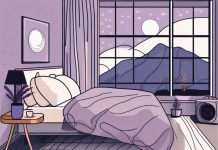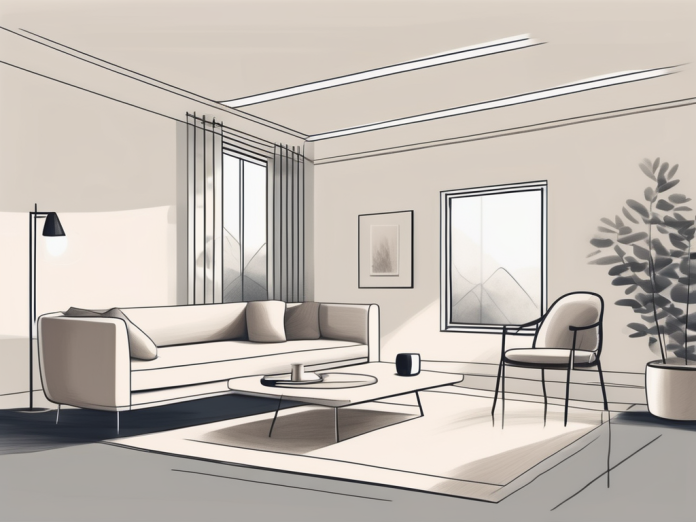In today’s fast-paced world, it’s easy to feel overwhelmed by the constant stream of distractions and clutter that surround us. Our homes are filled with unnecessary possessions, our minds are cluttered with endless to-do lists, and our digital lives are cluttered with countless apps and notifications. It’s no wonder that more and more people are turning to minimalism as a way to find peace and balance in their lives.
Understanding the Concept of Minimalism
Minimalism is more than just decluttering your physical space. It’s a mindset, a lifestyle choice that focuses on simplicity and intentionality. At its core, minimalism is about living with only the essentials and removing distractions to create room for things that truly matter.
When we talk about minimalism, we often refer to the idea of “less is more.” This concept extends beyond just our physical possessions; it also applies to our mental and emotional well-being. By simplifying our lives and letting go of excess, we can free ourselves from the constant need for more and find contentment in the present moment.
The Philosophy Behind Minimalism
Minimalism is rooted in the belief that our possessions shouldn’t define us or our happiness. Instead, it encourages us to prioritize experiences and relationships over material possessions. By embracing minimalism, we aim to reduce stress, increase our focus, and reclaim our time and energy.
At its essence, minimalism challenges the consumerist culture that often promotes the idea that buying more will lead to greater satisfaction. By shifting our focus away from accumulating things and towards cultivating meaningful connections and experiences, we can discover a sense of fulfillment that goes beyond material wealth.
The Benefits of a Minimalist Lifestyle
Adopting a minimalist lifestyle can have numerous benefits. It can bring clarity and peace of mind by reducing the mental and physical clutter in our lives. With fewer possessions, we can spend less time cleaning and organizing and more time pursuing activities that bring us joy and fulfillment. Minimalism can also help us save money, as we become more conscious of our spending habits and make intentional choices about what we truly need.
Furthermore, minimalism has environmental benefits as well. By consuming less and being more mindful of our purchases, we can reduce our carbon footprint and contribute to a more sustainable way of living. This aspect of minimalism aligns with the growing movement towards eco-consciousness and responsible consumption, highlighting the interconnectedness between our personal choices and the health of the planet.
The Journey Towards Minimalism
Embarking on the path to minimalism requires a shift in mindset and a commitment to change. Recognizing the need for change is the first step toward a more fulfilling and simplified life.
Recognizing the Need for Change
Take a moment to reflect on your current lifestyle and the impact it has on your well-being. Are you constantly overwhelmed or stressed? Do you feel suffocated by the clutter in your physical and mental space? Acknowledging these feelings is crucial to realizing that change is necessary.
Setting Your Minimalism Goals
Once you’ve recognized the need for change, it’s important to set realistic goals for your minimalism journey. Start by identifying areas of your life that you want to declutter and simplify. It could be your home, your work life, or even your digital space. Set specific goals that resonate with you and create a plan of action to achieve them.
Practical Steps to Declutter Your Life
With your goals in mind, it’s time to start decluttering your life and creating space for what truly matters. Here are some strategies to help you get started:
Strategies for Decluttering Your Physical Space
Start by decluttering one area of your home at a time. Take a critical look at each item and ask yourself if it brings value or joy to your life. If not, consider donating or selling it. Organize your belongings in a way that is visually appealing and makes it easy to find what you need.
Another important aspect of decluttering is learning to let go of sentimental items. While it may be difficult at first, remember that the memories associated with these items live in your heart, not in the physical object.
Simplifying Your Digital World
In today’s digital age, our virtual lives can be just as cluttered as our physical ones. Take time to assess your digital space and delete unnecessary files, apps, and emails. Create folders and organize your digital documents in a way that is logical and easy to navigate.
Minimize distractions by turning off non-essential notifications and practicing digital detoxes. Limit your time spent on social media and instead use that time for more meaningful pursuits.
Embracing Simplicity in Everyday Life
Adopting a minimalist mindset means making conscious choices to simplify every aspect of your life. Here are some ways to embrace simplicity in your daily routine:
Adopting a Minimalist Mindset
Practice mindfulness by being present in the moment and fully appreciating the simple joys of life. Focus on experiences rather than possessions and find contentment in the little things. Learn to say no to things that don’t align with your values or bring you genuine happiness.
Maintaining Your Minimalist Lifestyle
Minimalism is an ongoing process, and it requires consistency to maintain. Regularly assess your surroundings and let go of items that no longer serve a purpose in your life. Make it a habit to declutter and organize your physical and digital spaces on a regular basis.
Overcoming Challenges in Your Minimalism Journey
While the benefits of minimalism are undeniable, it’s important to acknowledge that there will be challenges along the way. Here are some common hurdles you may encounter and how to overcome them:
Dealing with Emotional Attachment to Possessions
Letting go of possessions can be emotionally challenging, especially if they hold sentimental value. Remember that memories are not tied to physical objects but live within you. Take comfort in knowing that by decluttering, you’re creating space for new experiences and opportunities.
Balancing Minimalism and Necessity
Minimalism doesn’t mean living with nothing. It’s about finding the right balance between having what you need and avoiding excessive consumption. Take time to reflect on your values and priorities to guide your decision-making process. Strive for a balanced approach that aligns with your individual needs and circumstances.
Mastering the art of minimalism is a journey of self-discovery and personal growth. By decluttering your life and embracing simplicity, you can create a space filled with the things that truly matter and find joy in living with less. Take the first step today and start experiencing the transformative power of minimalism.




























